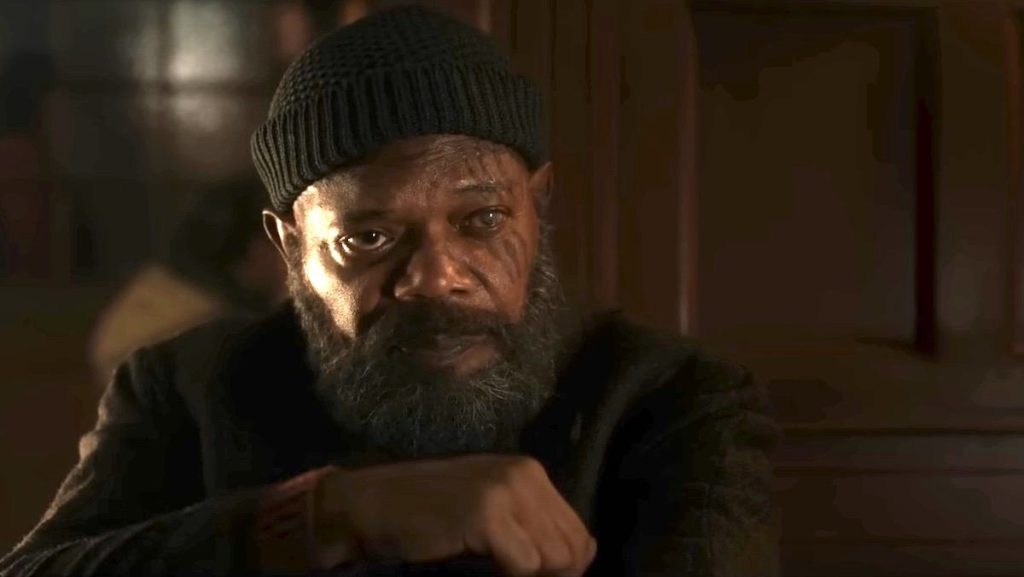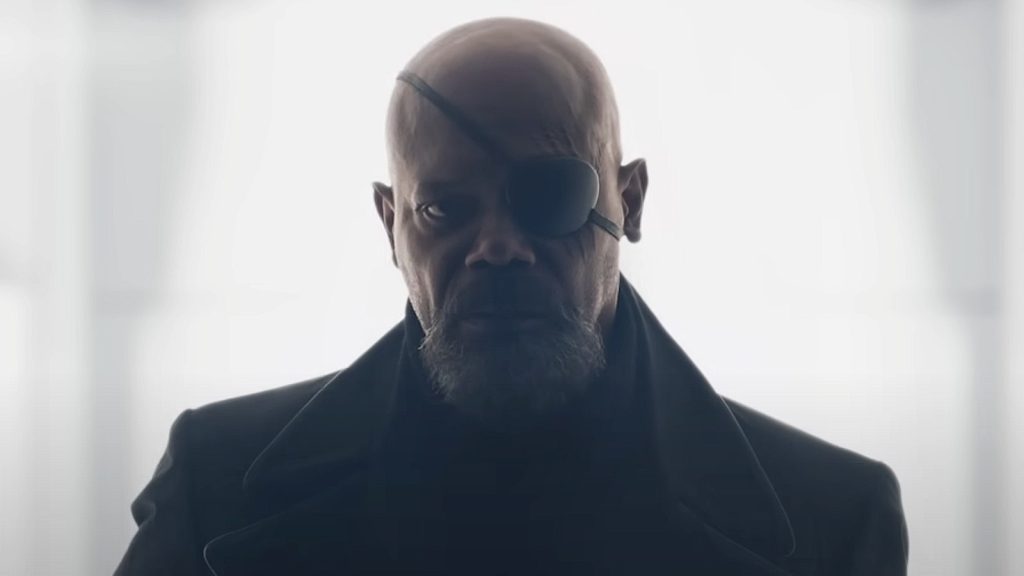Marvel’s ‘Secret Invasion’ is under scrutiny. Besides the harshly criticized intro sequence and sporadic story pacing, a pivotal event in the series’ third episode has sparked further discourse. Gravik, the antagonist portrayed by Kingsley Ben-Adir, executes a shocking act, seemingly taking the life of G’iah (Emilia Clarke), a key character and his previous second in command. This scene marks the second major character death caused by Gravik midway through the series, with the initial victim being Maria Hill (Cobie Smulders) in an eerily similar situation. While G’iah’s alleged demise might underscore Gravik’s cold-hearted villainy, and heighten the suspense in the Marvel universe, it exacerbates an increasingly disconcerting pattern in Secret Invasion and the broader MCU.
The Unfulfilled Promise of G’iah in ‘Secret Invasion’

Introducing G’iah into the Secret Invasion narrative seemed to hint at a clash deeply rooted in personal relations. The father-daughter dynamic between her and Talos (Ben Mendelsohn), set against the backdrop of an ongoing Skrull civil war, promised emotional depth and a sense of realness within a commonly recycled “defend Earth from ultimate destruction” storyline. Their personal divergence illustrated Gravik’s strategy of exploiting the fury and alienation of the Skrulls for recruitment. Both Talos and G’iah share a common objective — a home for their species — but their distinct viewpoints on achieving this goal tears their tight-knit family apart. Furthermore, G’iah’s reluctant collaboration as an informant for Talos and Nick Fury (Samuel L. Jackson) could have heightened the tension in this classic espionage drama.
However, much like Maria Hill, G’iah’s potential influence is abruptly cut short. Her fleeting venture as a repentant double-agent lacked both buildup and sustained suspense. There was a scarcity of scenes highlighting G’iah as an individual, beyond the narrative function she served. Discovering Gravik’s involvement in her mother’s death could have been a catalyst for a profound personal journey, reassessing her loyalty to a man she believed was right. Despite her decision to join Talos’ cause, G’iah didn’t embark on a redemption arc that delved into or prioritized her emotions.
Rather, she was a short-lived adversary who conveniently transitioned back to being an ally, expediting some plot developments. Her change of heart lacked depth, devoid of moral dilemmas or emotional consequences. It begs the question, why include G’iah when her character appears reduced to “she’s angry”? To waste the talent of Emilia Clarke seems an egregious misstep.
Marvel productions often contain an overload of plot elements, resulting in character development and smooth narrative progression suffering due to limited airtime. Unfortunately, G’iah and Maria’s roles in Secret Invasion appear more as narrative devices than meaningful characters. They both had moments of brilliance, cut short by their premature deaths, which in turn spurred male characters into action or emotional growth. Maria was the casualty of a shock factor, her death serving as a catalyst for Fury’s guilt-fueled awakening. G’iah’s demise followed the same “unexpected twist” formula. While we can’t predict how Talos will react to his daughter’s death, it seems that her life’s abrupt end speaks more to Talos’s tragic narrative than the tragedy of G’iah’s life cut short.
The Outdated Trope of ‘Fridging’ Female Characters

Character deaths in storytelling should serve a narrative purpose, marking a significant turning point or being the culmination of a character’s arc. While G’iah’s death could fulfill this requirement, there’s a recurring issue with the deaths of female and LGBTQIA+ characters that primarily serve to emotionally propel a male character. Comic writer Gail Simone coined the term “women in refrigerators”, or “fridging”, to describe this common trope where female characters are often killed off merely to evoke emotional responses from male characters. Her life, thus, is merely an extension of his, her death a transitory trauma.
It’s not that fictional female characters should be immune to death or that characters shouldn’t grieve. However, the deaths of Maria and G’iah reveal a troubling trend within Secret Invasion and a tired, unimaginative form of storytelling. It’s disheartening to witness this trope repetitively employed with an evident gender bias. Undoubtedly, the successive deaths of significant characters in Secret Invasion heighten the series stakes, offering audiences a more intense Marvel experience. But without genuine risk, the rewards are equally insubstantial.
Yet, it is possible to craft engaging narratives for women characters without sacrificing the intensity of the story. The first Black Panther movie is a testament to this fact. The “fridging” of women characters is no longer necessary, nor is it original or creative. It undermines and diminishes the entire narrative. For Secret Invasion to repeatedly use this device within three episodes is incredibly frustrating. Considering the franchise has already lost Natasha Romanoff (Scarlett Johansson) and Gamora (Zoe Saldaña), leading characters of their teams, it’s particularly disappointing. The trigger for G’iah’s shift to being a mole — the murder of her mother — is an additional case of fridging, albeit indirect.
A Call for Marvel to Step Up

Speculation based on Secret Invasion trailers suggests that G’iah’s death might be a ruse. Despite the bleak outlook given the bullet wound to her heart and her body reverting to Skrull form, there’s a chance it could be an elaborate deception. However, even if this is true, the strategy of killing off Maria only to replicate it with G’iah and then proclaim “gotcha!” is regrettable. The trope of fridging women characters isn’t shocking anymore. In 2023, a true surprise would be a storyline that doesn’t depend on the deaths of women.


